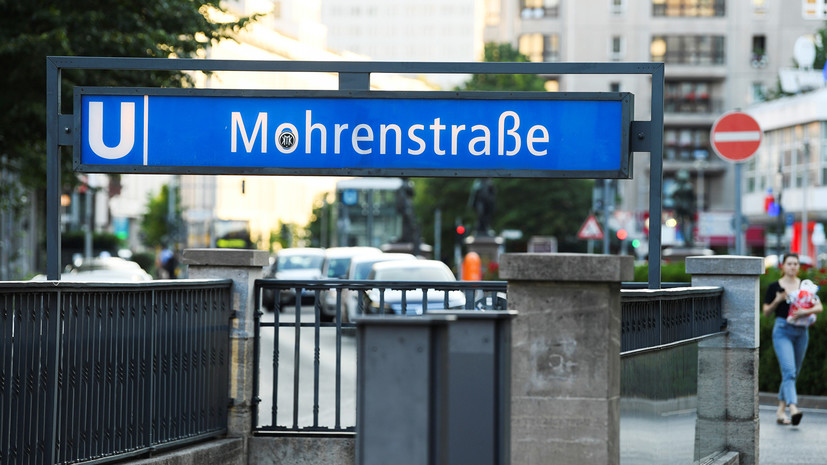According to Bild, Berlin will rename the Mavrov Street metro station due to a possible “racist” subtext. “Glinka Street” will come in its place by the name of the street passing nearby, named after the Russian composer.
The publication stated that Glinka was an anti-Semite, and one of his most famous works, Prince Kholmsky, was dedicated to the Jewish conspiracy.
In addition, a Jewish newspaper in the Federal Republic of Germany, Jüdische Allgemeine, published a note entitled “Bad Choice,” which states that calling a metro station in this way is a controversial idea.
As a justification, the author of the publication says that Glinka’s opera “Ivan Susanin” is allegedly saturated with Russian nationalism.
In addition, according to him, the opera "Prince of Kholmsky" is a "purely anti-Semitic heroic epic."
It was also claimed that the composer referred to the Moscow Conservatory, founded by Anton Rubinstein, as the "piano synagogue."
“Of course, Glinka did not have anti-Semitism. And he was friends and communicated with many famous creators, artists of Jewish origin. For example, he was friends with Meyerbeer, he was friends and admired the works of Judith Pasta, Judith Grisi, ”said Glinka's biographer Ekaterina Lobankova in an interview with RT Deutsch.
According to her, “Prince Chomsky” is called an opera, but this is not entirely true.
“This is a drama written by Glinka’s close friend, Nestor Puppeteer. And Glinka wrote the music for the drama ... From the point of view of the plot, Glinka did not participate in its construction, ”she said.
Lobankova also said that Glinka was angry at Rubinstein, but because of the emerging competition.
“Of course, Glinka was very angry with Anton Rubinstein. We need to understand the context, we must understand the story. And here, as a historian, I see in such an accusation a clash of the past worldview, past thinking and modern thinking. Indeed, in the time of Glinka the very concept of “anti-Semitism” did not exist at all. Anton Rubinstein belonged to a new generation of musicians, ”she explained.
Lobankova noted that when Rubinstein “came to the forefront of musical culture, Glinka felt” vulnerable.
“He belonged to the past generation of Russian musicians, he felt competition here. And this competition ... that it’s as if his music is becoming unnecessary, as if it is becoming a thing of the past, ”the specialist explained.
She added that it was a personal offense.
“Another very important fact is that it was in Berlin that Glinka met the girl Marie, whom he very respectfully called" of Jewish origin. " He wrote this in notes ... It was Marie who dedicated six studies for vocals, ”she said.
The situation was commented on by RT Deutsch and professor of drama at the Musical Theater of the University of the Arts Volkwang, associate professor of world literature at the Frankfurt media campus, Norbert Abels, saying that he considers the charges against Glinka in a wide context.
“In Germany, there is now a very big wave of cleansing. Take on "Peppy Longstocking." Take on the "Jim Button." Take on the "Little Witch." They are taking on “Roni, the daughter of a robber,” he said.
He refuted the designation of the Russian composer as "nationalist", justifying this with the production of Glinka's opera "Ivan Susanin" in Frankfurt's opera, on which he worked together with director Harry Kupfer.
According to him, “Ivan Susanin” is an eternal parable that can be put at all times and in all places, since the work deals with the resistance that a person wholeheartedly renders to a totalitarian system.
As for "Prince Kholmsky," Abels points out that this is not an opera at all, but the musical design of the drama of Nestor Kukolnik.
“What is being kept silent about this, for example, is the fact that Glinka inserted a Jewish melody into him, that he generally very intensively studied Jewish folk music,” he concluded.

